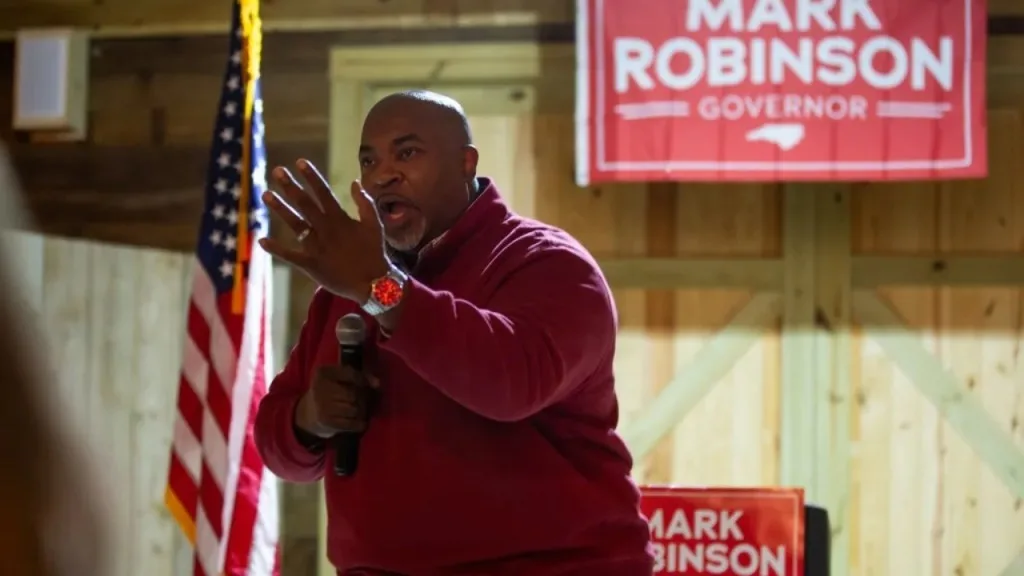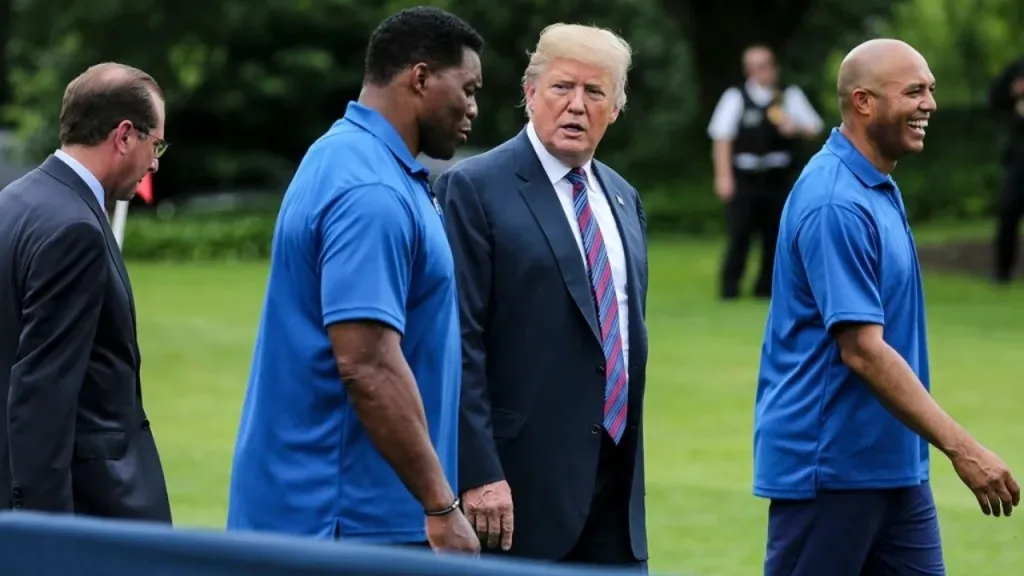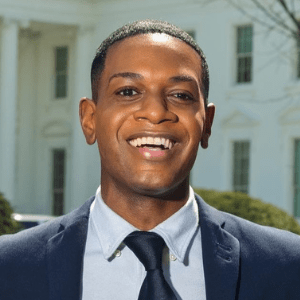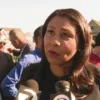Mark Robinson, the Republican candidate campaigning to become North Carolina’s first Black governor and the man Donald Trump called “Martin Luther King on steroids,” could threaten the former president’s 2024 campaign performance in the state.
The 55-year-old political figure — and current North Carolina lieutenant governor — is controversial, to say the least. He’s made incendiary online statements, like downplaying racism and claiming that Black American descendants of enslaved people should pay reparations. The Trump-endorsed gubernatorial candidate also said that Black gang members and Planned Parenthood did more than the Ku Klux Klan to “eradicate the Black race.”
“The MAGA movement has made it a practice to platform their most dangerous views and harmful stereotypes through figures like Robinson, [Herschel] Walker, Diamond and Silk and other borderline minstrels,” Markus Batchelor, national political director with People For the American Way, told theGrio. “It’s given room for conspiracy theorists and attention-seekers to be masqueraded as legitimate representatives of Black America.”
While Robinson may have found an embrace in Trump’s Republican Party as a conservative firebrand, political experts and advocates predict his candidacy could backfire in November. North Carolina is growing increasingly competitive for Democrats and has seen more Black and brown voters.
A polarizing candidate who has used social media in the past to call Black America’s “forever first lady” Michelle Obama a man and to support the racist birther conspiracy about America’s first Black president, Barack Obama, Robinson could activate Black voters, a loyal Democratic voting bloc, to go to the polls on Nov. 5. Voters will elect either Robinson or Democratic nominee Josh Stein, North Carolina’s current attorney general.

“Mark Robinson should make North Carolina a winnable battleground state for Democrats,” said Joel Payne, a Democratic strategist.
“You’re talking about a candidate that is so alienating and ostracizing to such a large swath of people that I actually think it could impact the top of the ticket,” he contended about Robinson’s impact on Trump’s campaign.
“That’s how grotesque and how over the line his opinions are,” said Payne. “This is a person who lives on the outskirts of American politics and is the standard bearer of the Republican Party in the state of North Carolina.”
Republicans saw such a political disaster in Georgia, where Walker, a former NFL player, unsuccessfully ran to unseat Democratic Sen. Raphael Warnock. Walker, also endorsed by Trump, was repeatedly hit for comments he made on the campaign trail — including admitting “I’m not that smart” — and lying about his resume and business practices.
“You might argue that, like, Mark Robinson is even more extreme in many ways than like the stuff that we heard from Herschel Walker,” said Payne, who served as director of paid Black media for Hillary Clinton’s 2016 presidential campaign.

Da’Quan Love, executive director of the NAACP North Carolina State Conference, told theGrio that Robinson is “bringing out the deeply rooted racism that may have been swept under the rug by a lot of others in the past. He is making folks feel comfortable enough to [say] their racist thoughts out loud. He’s saying the quiet part out loud, same as President Trump.”
Love said Robinson and “the hate that he spews is an inherent threat to the ability of Black North Carolinians to be able to survive and thrive over the next four years.”
There are more than 2.1 million Black residents in North Carolina. Data on how many are registered to vote is difficult to determine as voters in the state don’t often record their race. However, Black voters make up the largest share of registered Democrats in the state, according to the University of North Carolina at Chapel Hill.
Love noted that in this year’s primary elections, “Black voters came out, and they were decisive.” He said the NAACP North Carolina State Conference launched a $1.5 million campaign to mobilize over 1 million Black voters to go to the polls in November.
Black voters in North Carolina, he said, want “access to mobility and a thriving economy,” affordable housing, broadband internet access and “fully funded” public schools. Love said political figures like Robinson are “dividing our state and our country.”
“While they think that they’re just sowing division and spewing hatred,” he added, “they’re actually really revving us up to get folks out to the polls.”
Recommended Stories

Gerren Keith Gaynor is a White House Correspondent and the Managing Editor of Politics at theGrio. He is based in Washington, D.C.
Never miss a beat: Get our daily stories straight to your inbox with theGrio’s newsletter.


